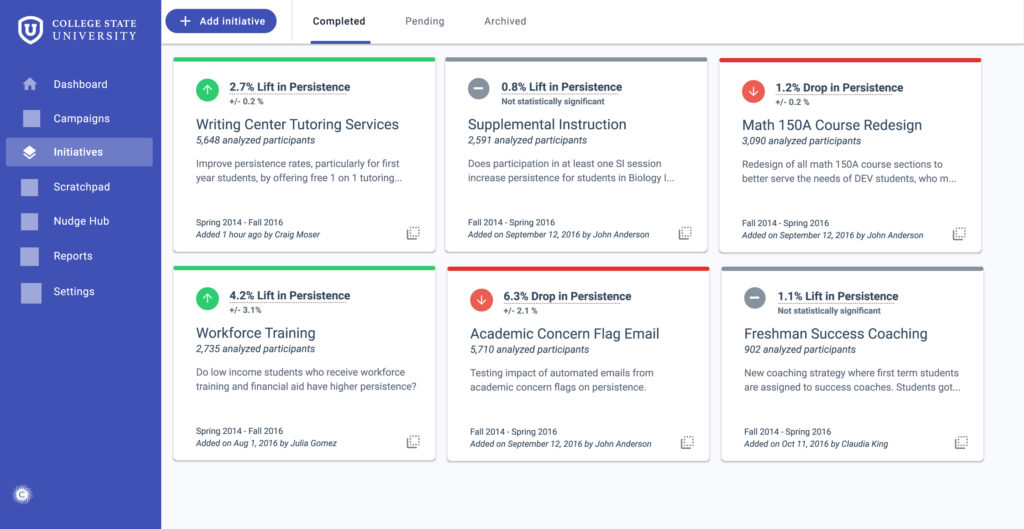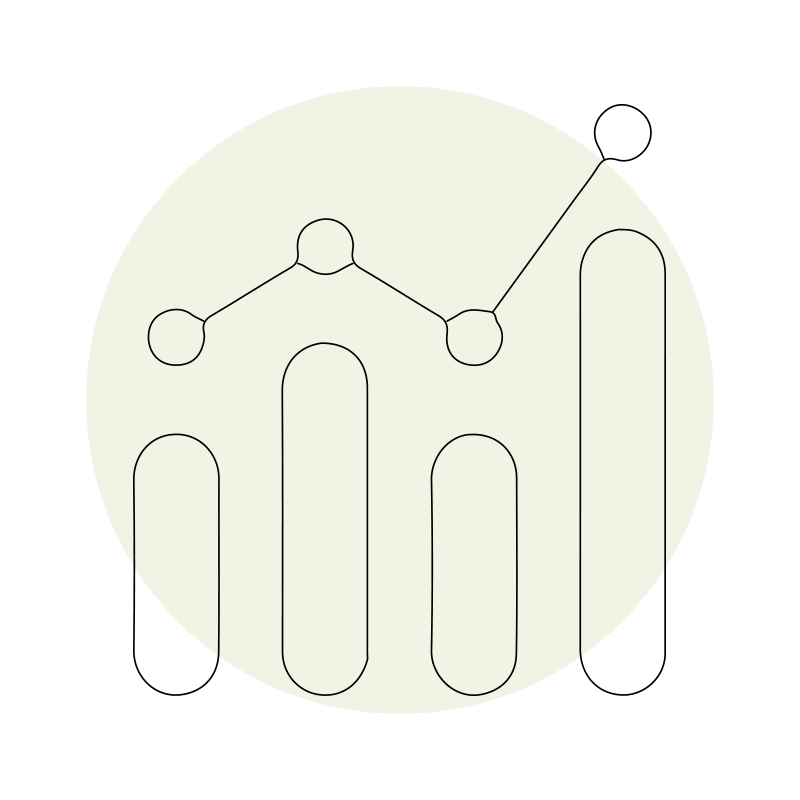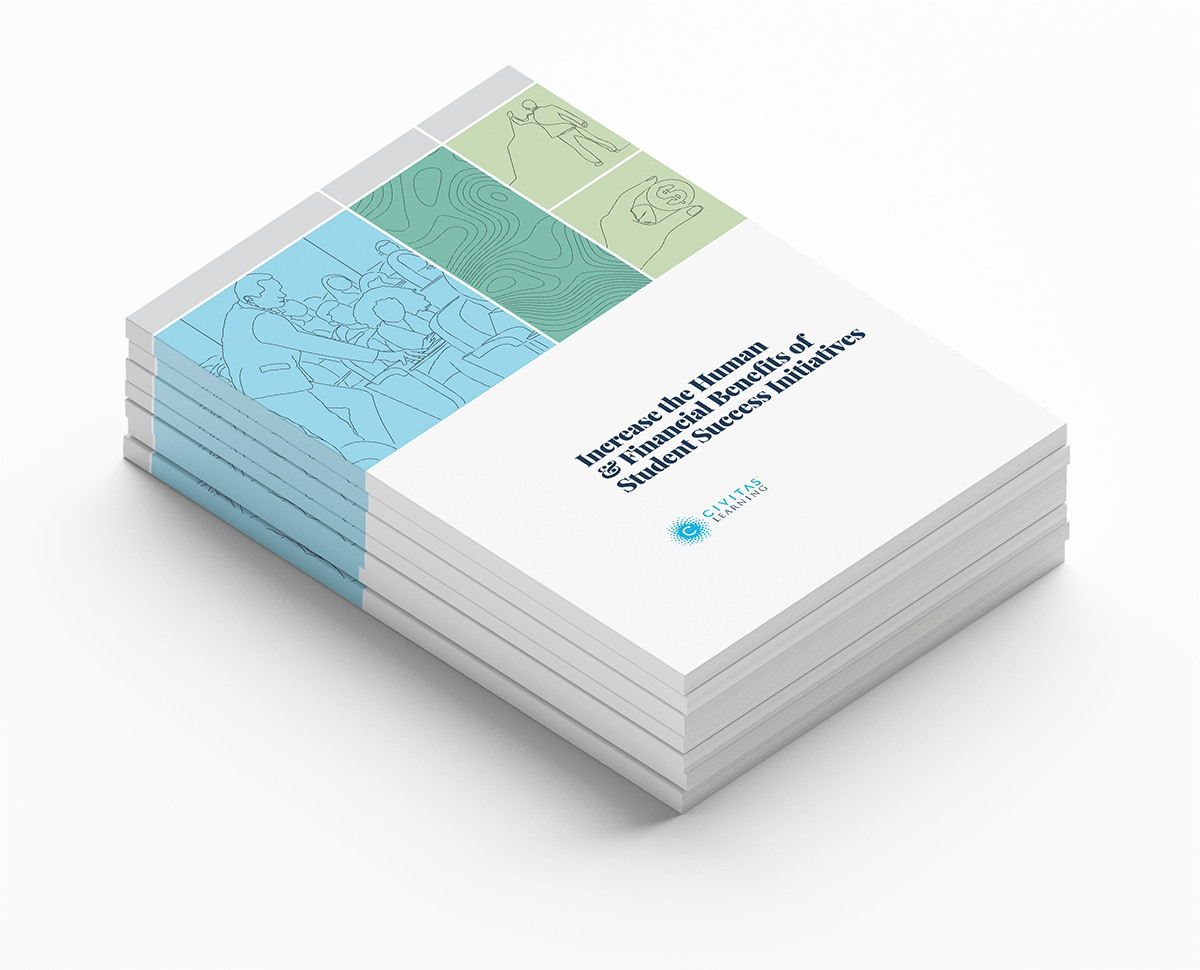
Maximize the Impact of Student Success Initiatives with Regular Efficacy Assessment
Share this Post
For years, colleges and universities have doubled down on their investments in student success. Despite their best efforts, many institutions still have work to do to improve student retention and graduation.
To improve student outcomes, your team must align on what approaches work at your institution to find the right combination of practices. With decreasing funding, knowing where to invest limited resources is essential. Institutional leaders must continuously assess every initiative’s efficacy to adjust and strategically invest in working approaches.
Without understanding what drives successful outcomes, a mismatch between your efforts to improve student success and the outcomes you can achieve emerges. Institutional-specific information is critical to understanding which programs work for particular student groups to move beyond traditional one-size-fits-all approaches.
Regular assessment of student success and retention strategies enables you to understand the true impact of each student success initiative to invest in the combination of strategies that are most beneficial for your students.

3 Ways Efficacy Assessment Improves Student Success
Knowing precisely what works for your students allows you to curate a system of SSIs that work together to improve outcomes for specific student populations-resulting in larger cumulative gains over time. Civitas Learning partners often share that without regular efficacy analysis, their decision-making becomes informed by dominant narratives and status quo practices.
Regular efficacy assessment lets you easily see which practices improve student success and generate a return on investment. This insight into what works enables you to create initiatives and take actions tailored to meet the needs of your particular students—allowing you to remove barriers to student success you didn’t see before.
Efficacy assessment helps you maximize the impact of student success initiatives by:
- Empowering you to allocate resources toward the initiatives that work best for your students
- Connecting the right students to the right initiatives to drive successful outcomes
- Informing program marketing efforts to increase student engagement
1. Allocate Resources Toward the Initiatives that Work Best for Your Students
The ability to accurately measure the impact of interventions on student success enables you to better allocate limited resources to the most effective strategies and programs.
Whether piloting a new approach or conducting an ongoing assessment of an existing program, data-informed efficacy assessment reveals the true impact of an initiative on a student’s persistence toward graduation. This insight enables you to understand what interventions offer the most effective support to your students.
For example, the Institutional Research team at Greenville Technical College wanted to know the impact of an outreach campaign on students with a low to very low likelihood of persisting to graduation.
They found that students who received outreach had a 15 percentage point increase in their persistence compared to students with similar persistence predictions who did not receive outreach. The team was able to measure the direct impact of the pilot program to know with certainty that personalized outreach has a powerful impact on students’ success.
With regular initiative assessment, you can know with greater precision and clarity which programs are working to support your students. This helps you to make better-informed resource allocation decisions and build on the success of existing programs.
How to Assess Student Success Initiative Efficacy
2. Connect the Right Students to the Right Initiatives to Drive Successful Outcomes
The factors influencing student success are numerous and complex. It’s no longer possible to rely on generalized approaches. To deliver effective support to all students, you must understand the risks and barriers students face and know which interventions are most helpful.
Regularly assessing the efficacy of your student success programs allows you to connect students to the right interventions at the right time by revealing what interventions actually work.
Snow College assessed its advising program to determine if all students benefit equally from a one-on-one advising experience. They found while all students benefit from personalized advising services, lower-performing students saw a 20% boost in persistence from an individual advising meeting compared to a 3% lift among high-performing students.
With advising caseloads ranging from 500 to 600 students per full-time advisor, determining the impact of one-on-one advising support across different segments of the student body helps the Snow advising team refine their practices and maximize their impact on student success.
Knowing that students in the lower quartiles of predicted success benefit much more from personalized advising support, Snow advisors are experimenting with group advising to serve high-performing students. This creates the capacity for more personalized outreach and support for students in the lower quartiles of success.
Explore Administrative and Initiative Analytics
3. Inform Program Marketing Efforts to Increase Student Engagement
Generalized marketing efforts like mass emails or flyers often fail to reach the students they need to. Several of our partners find that students who are least likely to succeed are also least likely to seek support. Unless strategies and systems are in place to provide proactive outreach, vulnerable students receive services less often.
Knowing which interventions are most likely to help a particular student allows you to connect students with the services and resources that benefit them most. Lorain County Community College’s ability to measure the impact of their student success initiatives revealed that Emergency Aid Funding resulted in a three percentage point lift in persistence.
Using Civitas Learning’s Initiative Analysis solution, leaders could identify which student populations benefitted most from emergency funding. Knowing that the emergency funds had the greatest impact on part-time students, late-career students, low-income students, women, and those with the lowest likelihood of persistence enabled support staff to tailor messaging directly to these student populations. Equipped with this information, LCCC leadership built a robust emergency fund and deployed it to provide holistic support to their students well before federal relief funds were available.
With regular efficacy assessments, you can study the effectiveness of your programs for certain student segments. Knowing what works for specific student groups allows you to conduct more targeted outreach campaigns for students who will benefit most from that program. In addition, sharing program efficacy results with frontline staff often helps them become more confident and proactive in their outreach to specific student groups. These outcomes move your institution closer to personalized support and increased student engagement critical to student success.
Regular Initiative Efficacy Assessment is Key to Improved Student Outcomes
Improving student outcomes requires an in-depth understanding of students’ challenges and the kind of support that works best for them. Regular efficacy assessment lets you easily see which practices improve student success.
Insight into what works enables you to allocate resources to the most effective initiatives. It also allows your staff to take actions tailored to meet the needs of your particular students. Knowing precisely what works for your students allows you to curate a system of SSIs that work together to improve outcomes for specific student populations-leading to significant cumulative gains in student success over time.





